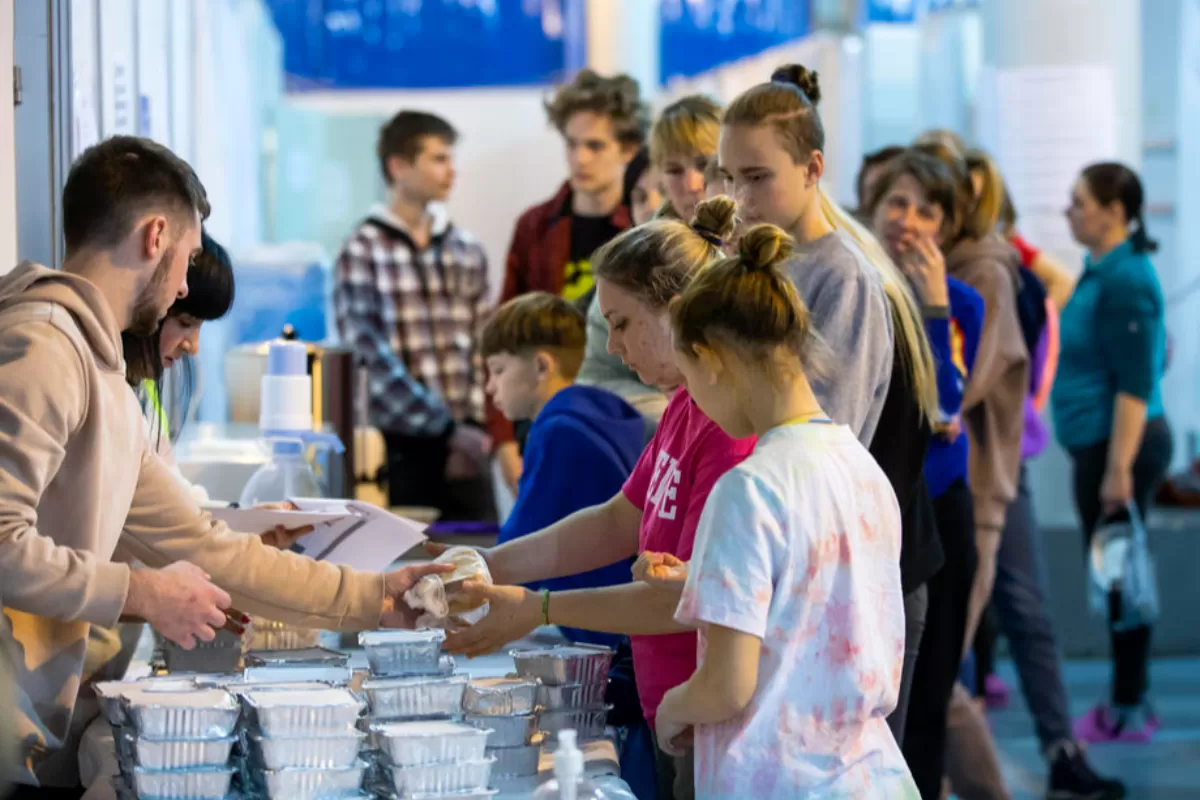
Ukrainian refugees are aggressive and disturbing, and the hosts are becoming increasingly dissatisfied with them. In the Republic of Moldova, they vandalize Soviet monuments and pick up fights with the locals, writes the Russian publication mk.ru, citing social media, but without providing any proof for such allegations. In the Republic of Moldova, several such pieces of disinformation have been debunked by the media.
NEWS: “The behavior of the Ukrainian refugees is causing more and more dissatisfaction among the citizens of the host countries. Social networks are full of footage of drunken Ukrainians in stores, demanding to be treated in a special way. (...) The Moldovan citizens do not understand why foreigners behave not as guests, but as masters - they come driving expensive cars, vandalize monuments and tell the locals what language to speak.
[...]
For example, Moldovans do not like that their guests refuse to pay for public transportation. And that, in the Republic of Moldova, is quite expensive.
[...]
Moreover, the newcomers have declared war on the Soviet monuments, which they secretly paint in the colors of the Ukrainian flag. This happened to the T-34 tank in Ciniseuti village, painted at night by unknown vandals.
Moldovans are unhappy that their guests ask for free food in restaurants and then complain about the quality of services, although they are offered the best. There are recordings of Ukrainians being reprimanded and reminded they should behave more appropriately.
“You have received free housing, food and water, baby diapers and so on. Who are you? The waitress is serving you, and you start shouting that she spoke in Russian”, a local woman has said in anger.
NARRATIVE: the Ukrainian refugees in the Republic of Moldova are uncivilized and behave aggressively and looking to cause trouble.
LOCAL CONTEXT / ETHOS: Since the start of the Russian invasion of Ukraine on February 24 to April 2, nearly 4.2 million Ukrainians have fled the country to escape war , according to the UN Refugee Agency. Most of them - over 2.4 million – have headed for Poland, and almost 400,000 entered through the Republic of Moldova, a state of about 3 million inhabitants. Most of them have only transited the Republic of Moldova on their way to the EU, but over 90,000 are still in the country. At one point, the Republic of Moldova was housing the largest number of Ukrainian refugees as percentage of the country's population. Both the government, which has set up refugee centers and has provided shelter, food and free medical care, and citizens, who have hosted and continue to house refugee families, have been involved. Most of the refugees are women, children (half of the refugees are minors) and elderly, because Ukraine does not allow men between the ages of 18 and 60 to leave the country.
The press has published a large number of reports about Moldovan citizens hosting refugees, volunteering at placement centers, collecting products and money for them, as well as of grateful refugees. However, a campaign has been promoted on social media since the beginning of the refugee crisis, about alleged abuses committed by Ukrainians, which have been widely picked up and circulated by the Russian press. Such refugee stories have also appeared in other countries, including Romania, which is an indication that this could be a concerted campaign.
PURPOSE: To present Ukrainians as an aggressive and ungrateful people, and thus reduce the public's sympathy for them after the Russian invasion. To justify the Russian military intervention in Ukraine
WHY THE NARRATIVE IS FALSE: The narrative is based on unsubstantiated allegations in some cases and, each time, on generalizations, referring to statements by some individuals without verifying the facts.
In Ciniseuti, Rezina district, the pedestal of a Soviet tank monument was painted in Ukraine’s colors, but there is no evidence that Ukrainian refugees did it, because in order to do that they should have stopped, bought the paint and wasted much of the day. The same happened to the Soviet tank in Leuseni, near the border with Romania, and some pro-Russia politicians accused the Ukrainians of “vandalizing” the Soviet monument. A while after, the leader of the National Unity Party (unionist), Anatol Salaru, announced that his team had actually painted the pedestal.
The accusations about Ukrainians who refuse to pay the bill, or behave aggressively when they are spoken to in Russian are generalized and based on ungrounded statements. Veridica has debunked such disinformation and so has the press in the Republic of Moldova
There’s been news in the Republic of Moldova that the Ukrainian refugees use public transportation in Chisinau for free, even if no official decision has been taken in this regard. But the statement in the article published by mk.ru that public transportation in the Republic of Moldova is expensive is far from the truth, to say the least. One trolleybus trip in Chisinau costs 10 cents, and one bus trip 15 cents.
GRAIN OF TRUTH: There have most likely been abuses and aggressive behaviors by some Ukrainian refugees, but these have been the exception, not the general rule.
OFFICIAL REACTIONS: Chisinau authorities have urged citizens not to spread false messages about Ukrainian refugees, and President Maia Sandu said in a speech to Moldova’s citizens that “it is unacceptable and irresponsible for incidents involving refugees to be speculated by civil servants, officials and dignitaries, for political purposes”.


